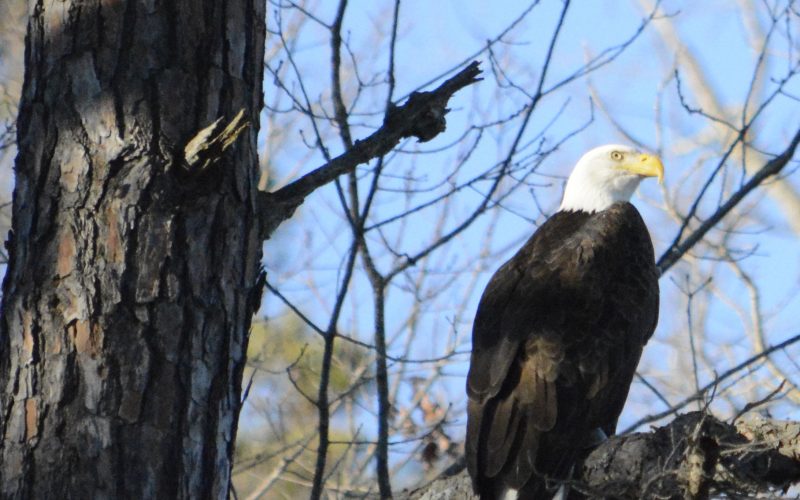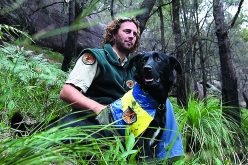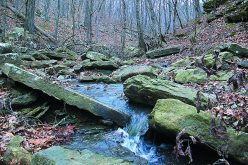It was another successful season for the Friends of Hobbs Eagle Watch Cruises on Beaver Lake, where, for just $10, this writer was lucky enough to see her first wild Bald Eagles. This winter, there have been 245 eagle sightings on Beaver Lake during cruises (this number is not the number of individual eagles, but sightings). These birds can be both residents and migrants, depending on age and quality of habitat. Cruises began in 2009 after the Hobbs State Park Visitor’s Center opened.
Many people are surprised to learn what a bald eagle actually sounds like. The film industry fooled the general public into mistaking a more majestic-sounding recording of the Red Tailed Hawk for that of the Bald Eagle on the screen, which in reality sounds a bit like a rodent on rapid-fire squeak. But eagles don’t need to sound like hawks to have a lot going for them; they are majestic in their own right.
Bald Eagles live an average of 28 years and have a wingspan of six to eight feet – that’s comparable to the height of a relatively tall human! Their courtship involves a “flight dance” of swoops, cartwheels, and a talon-locked free fall in which the pair separates just before hitting the ground like a crazy trust exercise. They’re known to mate for life, and typically raise two chicks in one of the largest nests of the bird world. The biggest nest on record weighed about two tons and was nine and a half feet wide! That’s a lot of space to stretch one’s legs – or wings, in this case. And juvenile eagles, which lack the adult’s distinctive plumage until age five, need their space. They have been tracked traveling from Florida to Michigan, California to Alaska, and range over almost all of the U.S.A. and Canada, including northern parts of Mexico.
Despite being big and beautiful, these raptors are notorious thieves, and won’t hesitate to steal a meal (usually fish) from another bird or eat carrion. Their reputation caused Benjamin Franklin to write this note to his daughter in 1784: “I wish the bald eagle had not been chosen the representative of our country. He is a bird of bad moral character. He does not get his living honestly.” Although well-loved by many, Bald Eagles were almost wiped out due to sport hunting and pesticide use.
National Geographic explains that “Pesticides like DDT wreaked havoc on eagles and other birds. These chemicals collect in fish, which make up most of the eagle’s diet. They weaken the bird’s eggshells and severely limited their ability to reproduce. Since DDT use was heavily restricted in 1972, eagle numbers have rebounded significantly and have been aided by reintroduction programs.” Since 2007, Bald Eagles have been off the endangered species list and are considered a conservation success story! By continuing to provide great habitat, we can keep entertaining Bald Eagles as our honored guests here in Northwest Arkansas.
Ripples is an emerging online educational center inspired by a holistic approach to making a difference. Follow our journey to live sustainably and make ripples with our lifestyle at: www.RipplesBlog.org.











